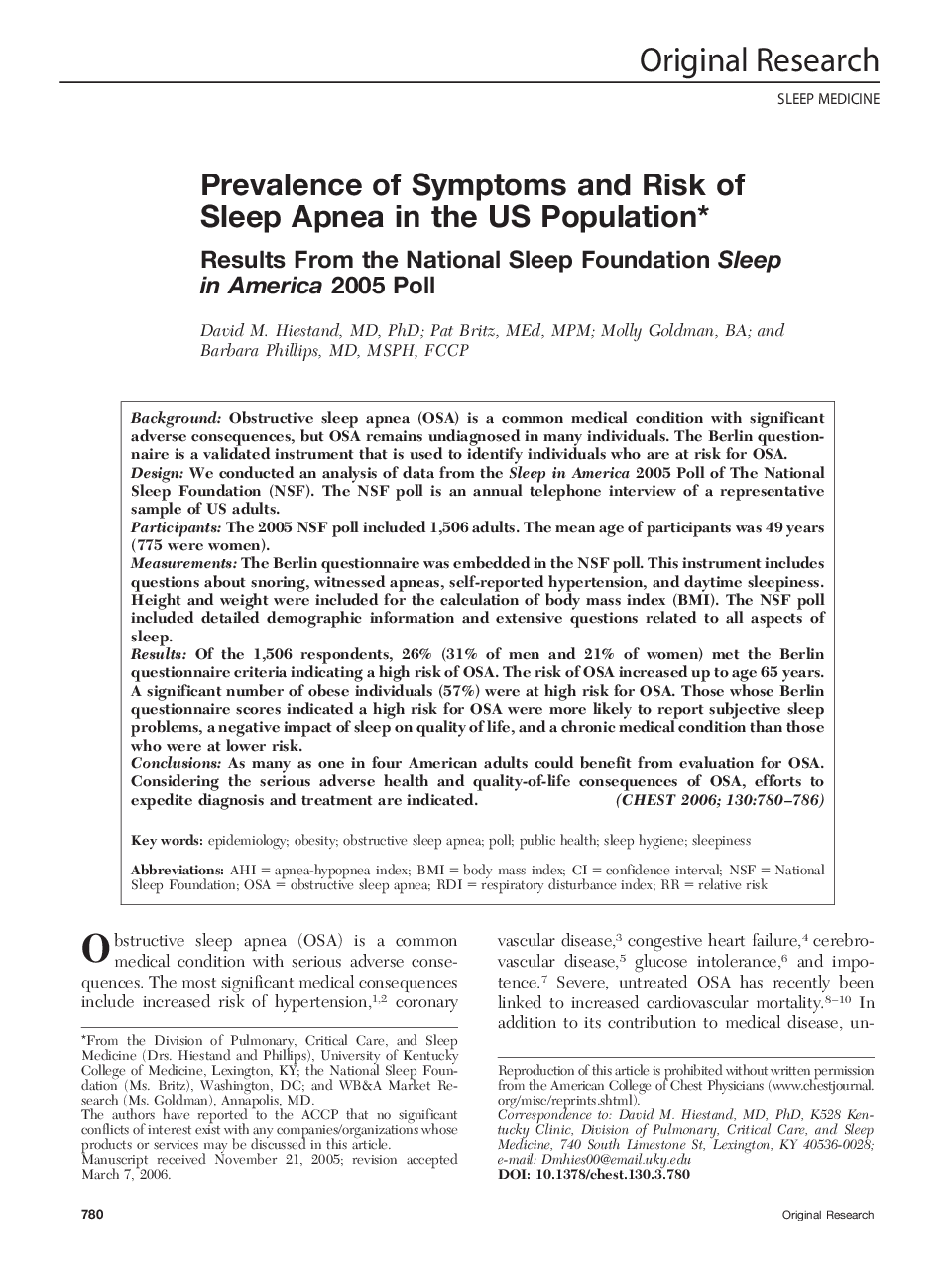| Article ID | Journal | Published Year | Pages | File Type |
|---|---|---|---|---|
| 2906745 | Chest | 2006 | 7 Pages |
BackgroundObstructive sleep apnea (OSA) is a common medical condition with significant adverse consequences, but OSA remains undiagnosed in many individuals. The Berlin questionnaire is a validated instrument that is used to identify individuals who are at risk for OSA.DesignWe conducted an analysis of data from the Sleep in America 2005 Poll of The National Sleep Foundation (NSF). The NSF poll is an annual telephone interview of a representative sample of US adults.ParticipantsThe 2005 NSF poll included 1,506 adults. The mean age of participants was 49 years (775 were women).MeasurementsThe Berlin questionnaire was embedded in the NSF poll. This instrument includes questions about snoring, witnessed apneas, self-reported hypertension, and daytime sleepiness. Height and weight were included for the calculation of body mass index (BMI). The NSF poll included detailed demographic information and extensive questions related to all aspects of sleep.ResultsOf the 1,506 respondents, 26% (31% of men and 21% of women) met the Berlin questionnaire criteria indicating a high risk of OSA. The risk of OSA increased up to age 65 years. A significant number of obese individuals (57%) were at high risk for OSA. Those whose Berlin questionnaire scores indicated a high risk for OSA were more likely to report subjective sleep problems, a negative impact of sleep on quality of life, and a chronic medical condition than those who were at lower risk.ConclusionsAs many as one in four American adults could benefit from evaluation for OSA. Considering the serious adverse health and quality-of-life consequences of OSA, efforts to expedite diagnosis and treatment are indicated.
